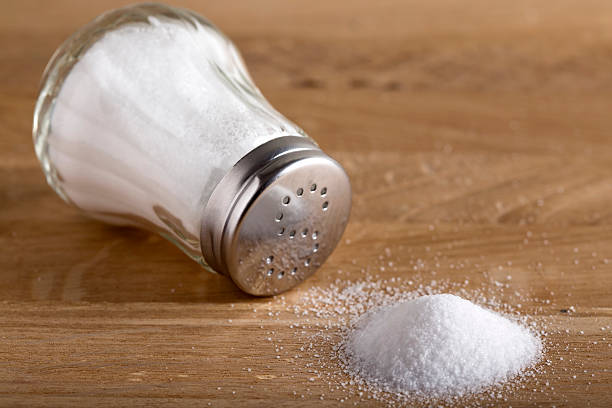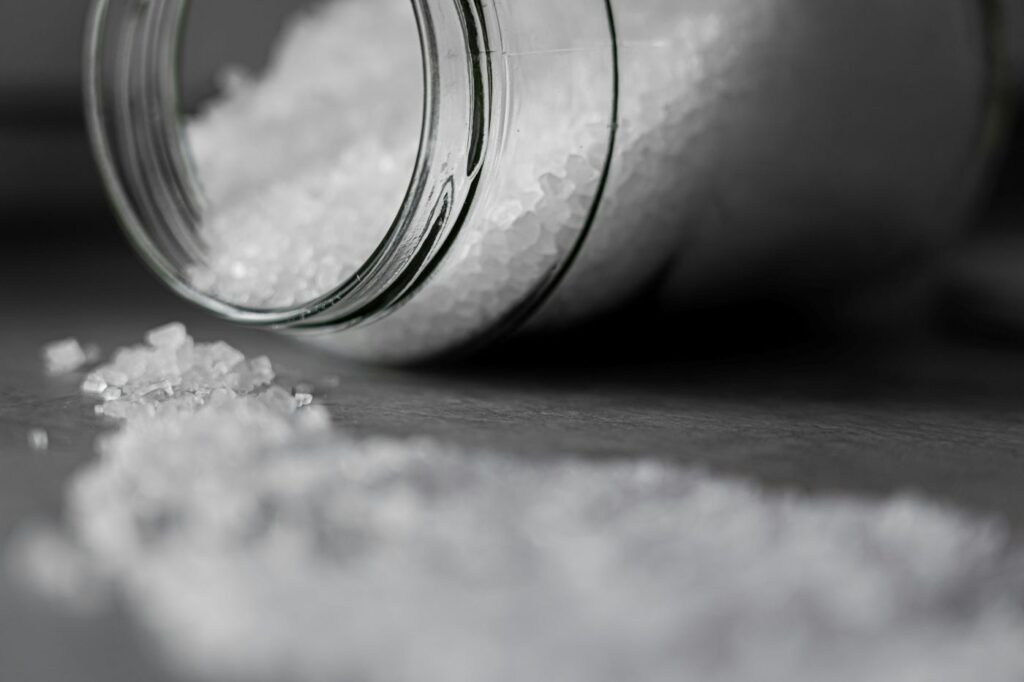Health Conditions
The Vitamin Deficiency That Makes You Crave Salt
It’s critical to listen to your body, as salt cravings could indicate a need for specific minerals.
Are you always grabbing for the salt shaker before tasting your food? Your desires may indicate an underlying vitamin shortage. But what vitamin deficiency makes you desire salt?
In this article, we will look at the relationship between salt cravings and vitamin deficits. We’ll investigate the science behind these desires and identify the specific vitamins that play a role. Understanding the underlying reason of your salt cravings allows you to take actions to correct the shortage and enhance your overall health.
Don’t ignore your body’s signals. Join us as we discover the truth about the link between vitamin deficits and salt cravings. With our expert insights and concrete guidance, you’ll be able to make sound decisions and fuel your body effectively. Say goodbye to excess salt and hello to a healthier, more balanced living.
Understanding the Role of Vitamins in the Body
Our bodies require vitamins to function properly. They are essential for several physiological activities, including as metabolism, energy production, and immunological function. Each vitamin serves a specific purpose and has distinct deficiency symptoms. Understanding the role of vitamins in the body is essential for determining the exact vitamin deficit causing salt cravings.
Vitamins are divided into two categories: fat-soluble and water-soluble. Fat-soluble vitamins, such as vitamins A, D, E, and K, can be kept in the body’s fat tissues for an extended period of time. Water-soluble vitamins, such as vitamins B and C, cannot be stored in the body and must be supplied on a regular basis through diet or supplementation.

Common Symptoms of Vitamin Deficiencies
Vitamin deficiencies can manifest in a variety of ways and are not always straightforward to recognize. However, several common symptoms may suggest a deficit. Fatigue, weakness, hair loss, skin problems, poor immunological function, and even changes in appetite or desires are all possible signs. Recognizing these signs will help you identify the exact vitamin deficit that is causing your salt cravings.
It is important to note that symptoms alone may not be sufficient to diagnose a deficit. For a precise diagnosis, consult with a healthcare expert and undergo blood tests. This will allow you to efficiently treat any deficits and adjust your nutritional diet accordingly.
The Connection Between Salt Cravings and Specific Vitamin Deficiencies
Salt cravings may be caused by vitamin deficits. Let’s look at the relationship between salt cravings and three specific vitamins: vitamin D, B12, and iron.
Vitamin D Deficiency and Salt Cravings
Vitamin D is best known for promoting calcium absorption and bone health. However, new studies have found a relationship between vitamin D insufficiency and increased salt cravings. According to studies, insufficient vitamin D levels might disturb the body’s sodium balance, increasing the urge for salty meals.
To correct vitamin D deficiency, increase sun exposure or try taking vitamin D supplements. Furthermore, eating vitamin D-rich foods like fatty fish, fortified dairy products, and egg yolks will help refill your levels and lessen salt cravings.

Vitamin B12 Deficiency and Salt Cravings
Vitamin B12 is required for the formation of red blood cells and normal brain function. Deficiency in this vitamin can produce pernicious anemia, which can lead to salt cravings. The specific mechanism underlying this association is still being investigated, but experts believe it may be linked to alterations in taste perception.
To treat vitamin B12 deficiency, include animal-based products such as meat, fish, eggs, and dairy in your diet. If you live a vegetarian or vegan lifestyle, consider taking a B12 supplement or eating fortified plant-based foods to meet your daily needs.
Iron Deficiency and Salt Cravings
Iron is a vital mineral that aids in oxygen delivery and energy production. Also Iron deficiency, commonly called anemia, can cause a variety of symptoms, including salt cravings. This is assumed to be the outcome of the body attempting to enhance iron intake by consuming salty foods.
To treat iron deficiency, eat iron-rich foods such lean meats, shellfish, beans, and leafy green vegetables. Combining these foods with vitamin C-rich sources can help improve iron absorption. In extreme situations of iron insufficiency, iron supplementation may be required under the supervision of a healthcare provider.

Other Possible Causes of Salt Cravings
While vitamin shortages are a typical source of salt cravings, other variables should be considered. Dehydration, hormone imbalances, certain medications, and elevated stress levels can all have an impact on your cravings for salty foods. Understanding these potential causes will allow you to treat them correctly and maintain a healthy diet.
Testing and Treating Vitamin Deficiencies
If you feel that your salt cravings are caused by a vitamin deficit, you should see a doctor. They can do blood tests to precisely diagnose any deficits and recommend appropriate treatments. In some circumstances, dietary adjustments alone may be adequate, while in others, supplementation may be required.
Remember that self-diagnosis and therapy are not encouraged. Seek expert help to correct any inadequacies safely and effectively.
Conclusion
Finally, salt cravings can indicate underlying vitamin deficits. Understanding the role of vitamins in the body and recognizing typical deficiency signs is critical for determining the underlying cause of your cravings. Addressing any inadequacies through dietary adjustments or supplementation can enhance your general health and minimize your dependency on excessive salt use.
Maintaining a balanced diet is essential for good health. If you want more information and advice on eating a healthy diet, talk to a qualified dietitian or nutritionist. These pros can make unique advice based on your individual requirements and objectives.
Remember that your body is continually conveying its demands to you. Don’t disregard its indications, which include salt cravings. Take the required steps to properly nourish your body and lead a better, more balanced lifestyle.
Trusted Health, Wellness, and Medical advice for your well-being



